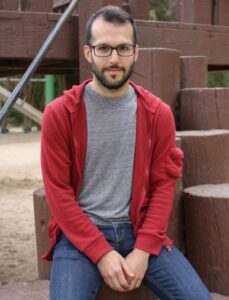Born and raised in Venezuela, SILV migrated to the United States with their parents and sibling. Originally dreaming of a comedic future with a side of film animation, SILV eventually found prose and lyric during puberty, when poems, songs and short stories began filling their every composition notebook. Once in college, SILV began publishing the first of five books exploring writing and photography in a plethora of themes ranging from death, spirituality and queerness. The latest, Toy Soldier, is a visual and literary exploration of gender liberation. In Portland, SILV co-curates TAG! Queer Shorts Festival, and their latest project, Mapping Masculinity, is a co-created documentary archive exploring intersectional masculinity. Their latest book, Yo No Soy Rafael, will be a curation of short stories and poetry deconstructing the childhood mythology of the queer self.
Yo No Soy Rafael (I Am Not Raphael) is a book that has been birthed and grown throughout the last two years as quarantine, lockdowns, social unrest, heightened phobias, familial obstacles and self-seeking has led SILV, like most, to isolate in ways previously unimaginable, and understanding what it means to be
content, complete, and the dynamism of growing older, being alive and how our origin stories and traumas
persist, insidiously. As a child, growing up in South America and being heavily influenced by United Statian culture and media, SILV grew up as a fanatic of the Teenage Mutant Ninja Turtles. Although there was no clear understanding at the time, SILV often was left to be, and happily identified with the red bandana-wearing character, whom years later with further inspection, is portrayed as a morose, too-deep-to-be-a-bro, emotional, solitary intellectual often jokingly ostracized by their siblings who are often preoccupied with eating pizza and objectifying women. It is clear how this queer-coded character made an impression in the mythology of whom SILV would become as an intersectional queer male-leaning adult.
The book, without planning it, has assisted in the unearthing of how our childhood emblazons an identity that is often challenging to remove completely, and if this is the case, how we hope to not allow these elements to follow us into future interpersonal, professional, creative and communal relationships where these elements mark us deeply.

